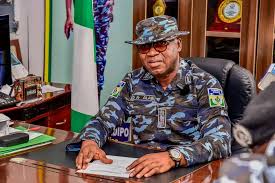
Guinea implemented sweeping restrictions on Sunday, September 21, as citizens went to the polls for a constitutional referendum, with the Economic Community of West African States (ECOWAS) deploying observers to ensure a credible vote.
The Ministry of Territorial Administration and Decentralization (MATD) issued a decree banning all vehicle traffic from 6:00 a.m. to 6:00 p.m., covering cars, motorcycles, and tricycles nationwide. Only vehicles belonging to the Defence and Security Forces, ambulances, and emergency services are exempt. Exceptional passes can be granted by the Internal Security Operational Command Post (PCO-SI), which is charged with strict enforcement of the measure.
The government stressed that the restrictions aim to guarantee the smooth conduct of the referendum and enhance public safety.
Simultaneously, ECOWAS deployed 11 experts from the electoral commissions of member states, mandated by its president, Dr Omar Alieu Touray, to observe the vote. The mission, coordinated by Serigne Mamadou Ka, acting head of the ECOWAS Electoral Assistance Division, spans September 17 to 23 and covers the regions of Conakry, Kankan, Kindia, Mamou, and Labé.
The referendum marks a key moment in Guinea’s political transition. Transitional President General Mamadi Doumbouya received the draft of the new Constitution in June from Dr Dansa Kourouma, President of the National Transitional Council (NTC). The proposed text includes a seven-year presidential term renewable once, the creation of a Senate, and provisions allowing Doumbouya to run in the next presidential election.
Guinea’s biometric electoral register lists 6.7 million voters across more than 23,000 polling stations. Authorities say the newly received modern electoral kits will help secure the voting process, despite criticism from opposition groups questioning the transparency of the referendum.
ECOWAS has reiterated its commitment to supporting Guinean authorities and enhancing the credibility of the constitutional vote, which is widely regarded as pivotal for the country’s institutional future. Observers will monitor the process closely to ensure that the election reflects the will of the electorate.



